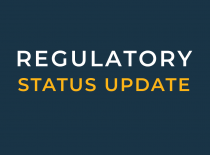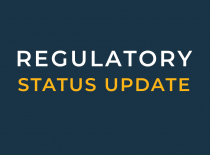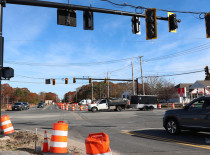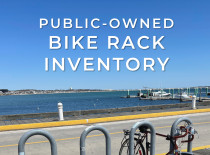Category: Newsletter
The Cape Cod Commission is a pre-qualified planning service provider through the Massachusetts Broadband Institute's (MBI) Municipal Digital Equity Planning Program for the 15 towns of Barnstable County. Through this program, the Commission assisted the towns of Bourne, Sandwich, Orleans, Falmouth, and Barnstable in developing municipal digital equity plans, roadmaps for ensuring that all residents have access to the devices, connectivity, and skills needed to participate fully in today's digital society.
MBI invited towns with completed digital equity plans to apply for one-time grants of up to $100,000 through the Municipal Digital Equity Implementation Program to carry out projects identified during the planning process. All five participating towns received awards and are now moving forward with implementation.
A status on projects currently under review by the Cape Cod Commission.
This Regulatory Update provides a status on projects currently under review by the Cape Cod Commission. Visit www.capecodcommission.org/regulatory for a full overview of our Regulatory program and answers to frequently asked questions.
The Executive Office of Housing and Livable Communities is working to finalize the regulations for implementing the Seasonal Communities Act. Cape Cod Commission staff recently submitted comments on the draft regulations, recommending clear alignment between definitions of primary residence, greater specificity around how municipalities should approach zoning for undersized lots, and a more consistent minimum occupancy requirement that reflects the intent of year-round housing.
For the past three years, the Cape Cod Commission and the Association to Preserve Cape Cod have collaborated on the Cape Cod Regional Pond Monitoring Program (RPMP), an effort to collect consistent data from 50 representative ponds across the region. Since the spring of 2023, monitors, including hundreds of volunteers, have made nearly 1,000 visits to ponds, collecting almost 3,000 samples. Now, at the end of its initial three-year run, the program has brought new insight, new capabilities, and a new level of community involvement to understanding pond health across Cape Cod. Now, the Commission is seeking to expand the program and continue it for years to come.
The 2025 Regional Policy Plan (RPP) serves as the foundation for local and regional planning and regulation across Cape Cod. Updated every five years, the RPP guides development and resource protection across the region, ensuring that Cape Cod’s natural, built, and community systems remain in balance.
For the past year, the Commission has been engaged in a process to update this document, holding public hearings, stakeholder meetings, and focus groups, and conducting surveys to ensure it aligns with the region's needs. The Cape Cod Commission approved the updated RPP in October and it will soon be adoped as a Barnstable County ordinance.
In December 2024, the Cape Cod Commission partnered with the Town of Eastham to develop a municipal climate action plan. Building on the Cape Cod Climate Action Plan, this effort designs regional strategies tailored to Eastham’s unique needs, priorities, and environmental conditions. The project is now nearing completion.
Communities across Cape Cod continue to advance a wide range of roadway, safety, and multimodal improvements. The following project updates summarize current construction activity, recently completed milestones, and upcoming work for major state and local transportation projects that are funded through the region’s Transportation Improvement Program.
This Regulatory Update provides a status on projects currently under review by the Cape Cod Commission. Visit www.capecodcommission.org/regulatory for a full overview of our Regulatory program and answers to frequently asked questions.
Recently, Commission transportation staff completed two regional inventory projects designed to inform future transportation improvements: an inventory of municipally owned bicycle racks and an inventory of overhead flashing beacons. Both efforts were funded through the 2025 Unified Planning Work Program (UPWP), which supports transportation planning initiatives throughout Barnstable County.









